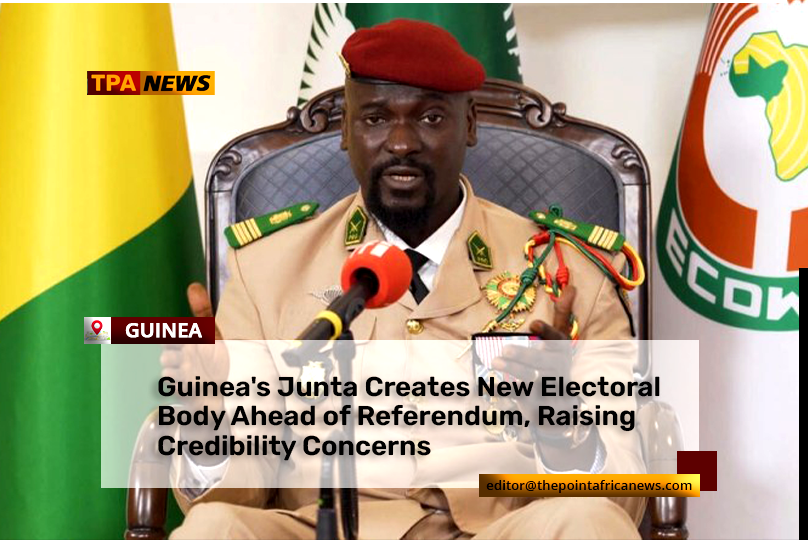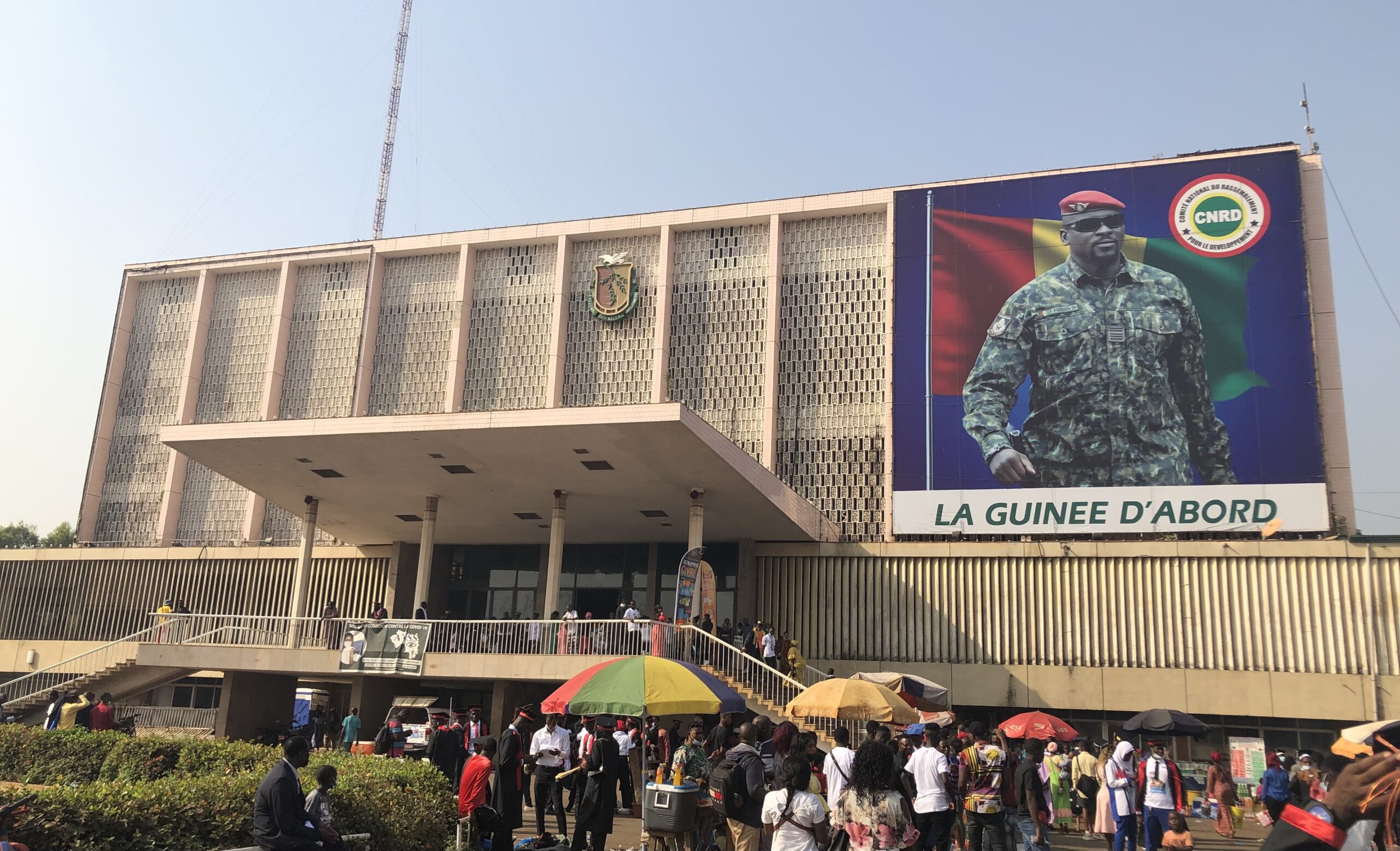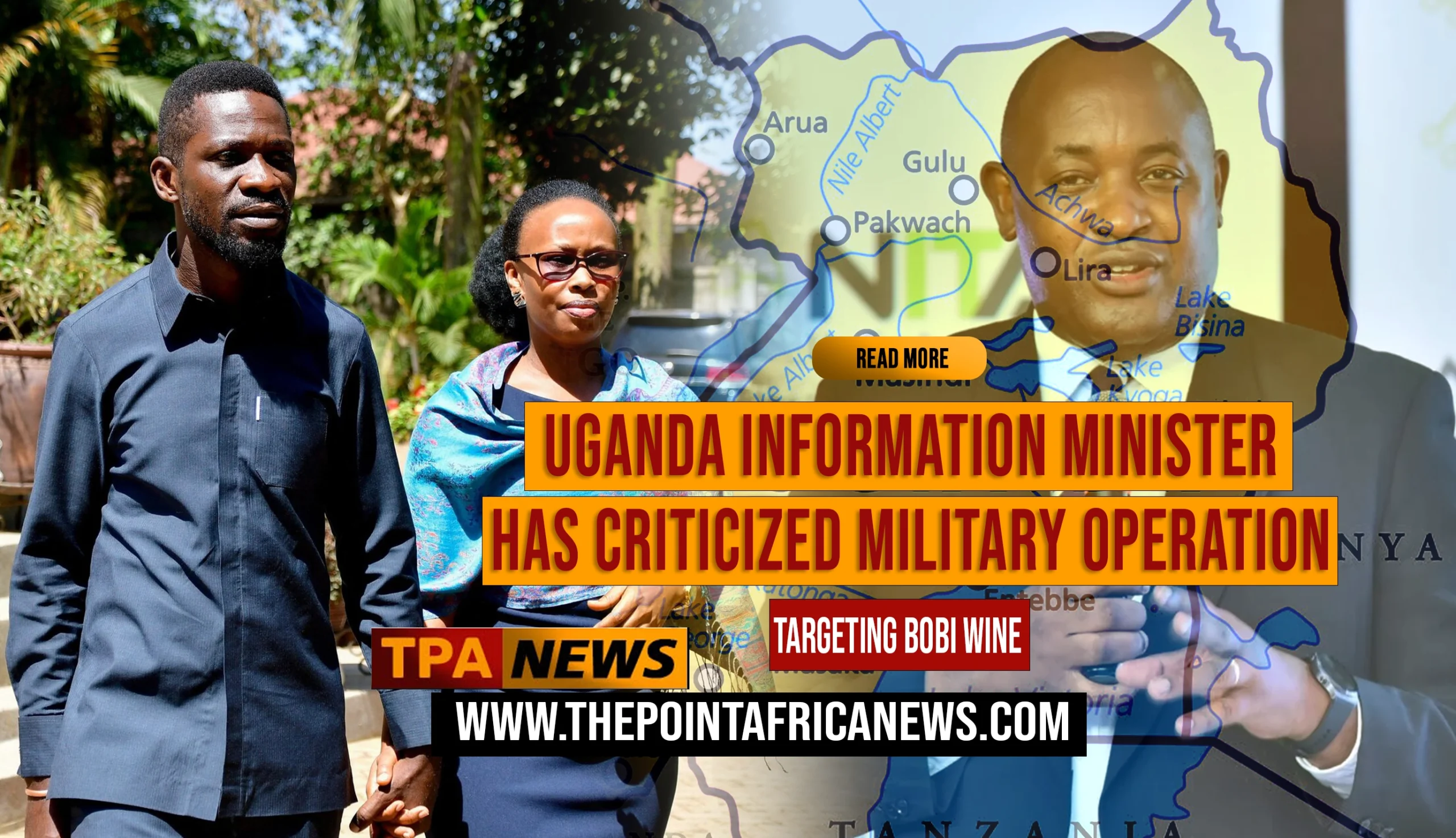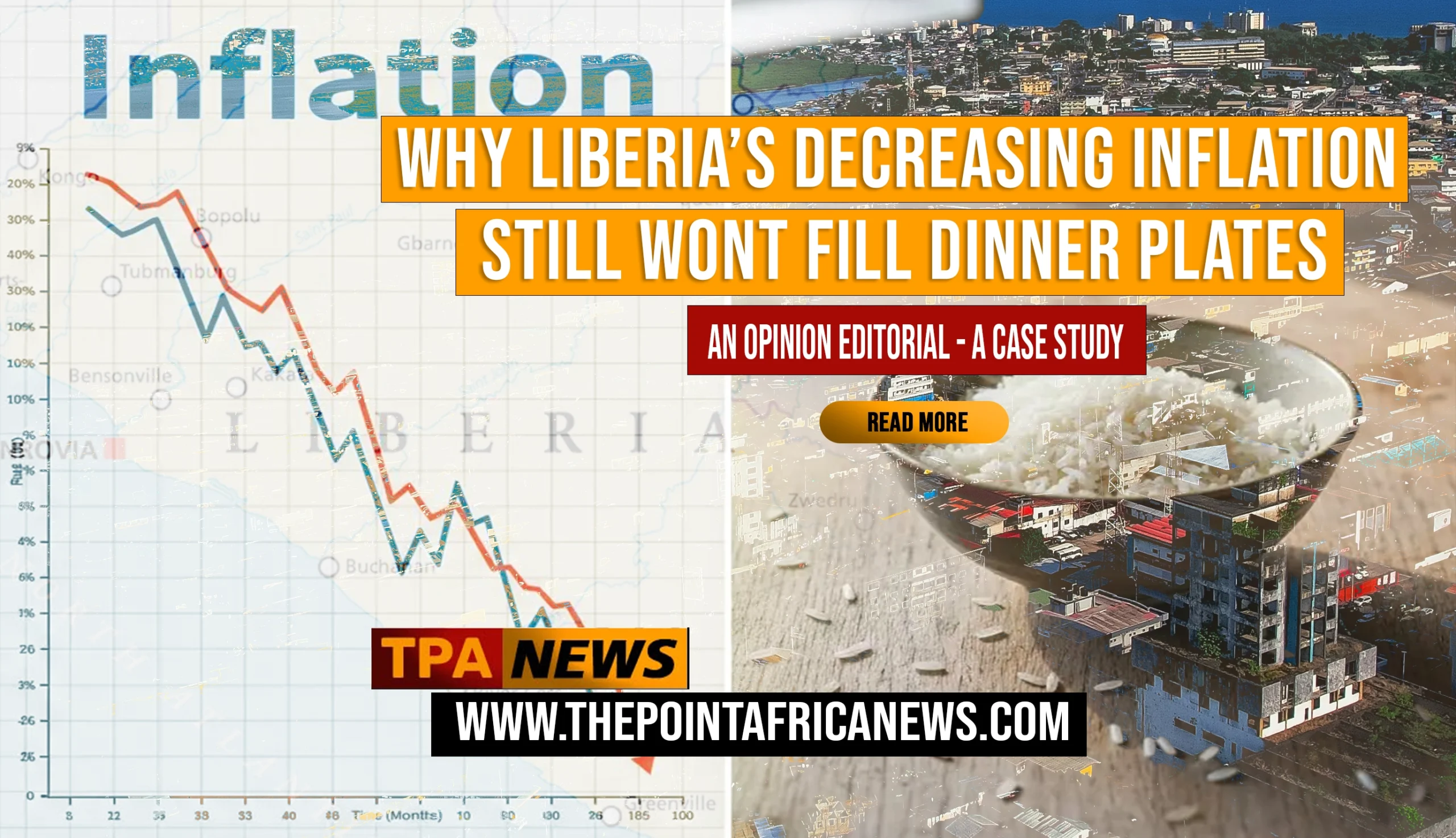By: TPA News Desk | editor@thepointafricanews.com

CONAKRY, Guinea – Guinea’s transitional president, General Mamadi Doumbouya, has issued a decree to establish a new electoral body, the General Directorate of Elections (DGE), effectively replacing the Independent National Electoral Commission (CENI). The move, announced on state television late Saturday, June 14, 2025, signals a significant shift in the country’s path toward a return to constitutional order, but also immediately sparked concerns among legal experts and opposition groups.
The newly formed DGE will assume responsibility for “organizing political elections and referendums” across Guinea, as well as managing the biometric voter roll using national civil and population registries. The decree also indicated that the DGE, which will operate under the interior ministry and enjoy financial autonomy, will help set up “a special force to secure the elections.”
This restructuring comes ahead of a crucial constitutional referendum scheduled for September 21, 2025, and general and presidential elections slated for December 2025. Prime Minister Amadou Oury Bah had previously confirmed these electoral timelines last month, with General Doumbouya having promised in his New Year’s address that 2025 would be a “crucial electoral year.”
However, the creation of the DGE and its placement under the authority of the interior ministry has drawn sharp criticism. Mohamed Traore, a former head of Guinea’s bar, denounced the move in a Facebook post, suggesting it would lead to “a public administration totally politicised and partisan.” He argued that administrators who “act like party activists” already raise “real issues of sincerity and credibility regarding upcoming elections.” Critics fear that centralizing electoral management under a government ministry, rather than an independent body, could compromise the fairness and transparency of the upcoming polls.

The junta, which seized power in a 2021 coup, had initially promised elections by the end of 2024 but missed that deadline, leading to opposition protests in January. Concerns about the credibility of the elections are compounded by the military regime’s dissolution of over 50 political parties last year and a tightening grip on independent media. The “transition charter” established after the coup barred junta members from standing in elections, but the adoption of a new constitution could potentially remove this barrier, fueling suspicions about General Doumbouya’s ultimate intentions. The establishment of the DGE therefore marks a pivotal, yet controversial, step in Guinea’s prolonged transition period.









Leave a Reply